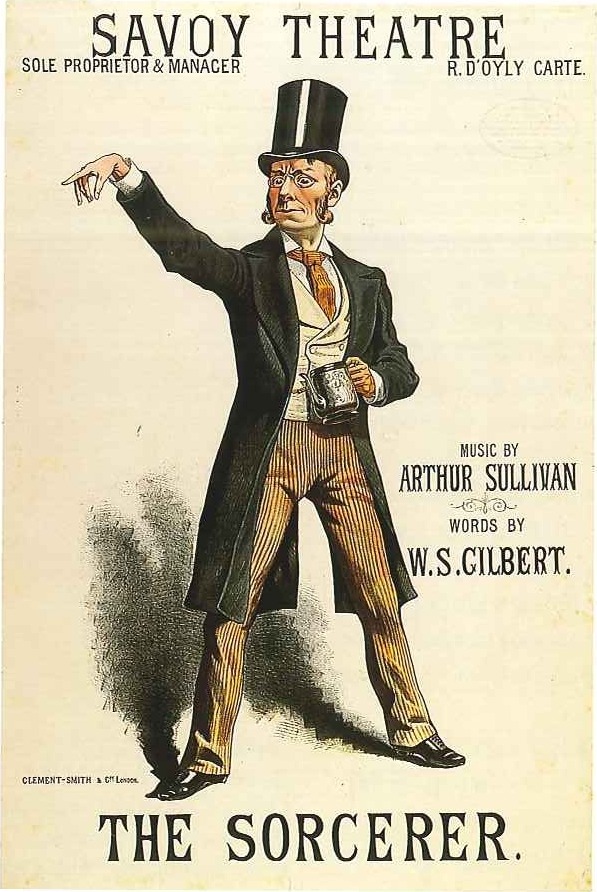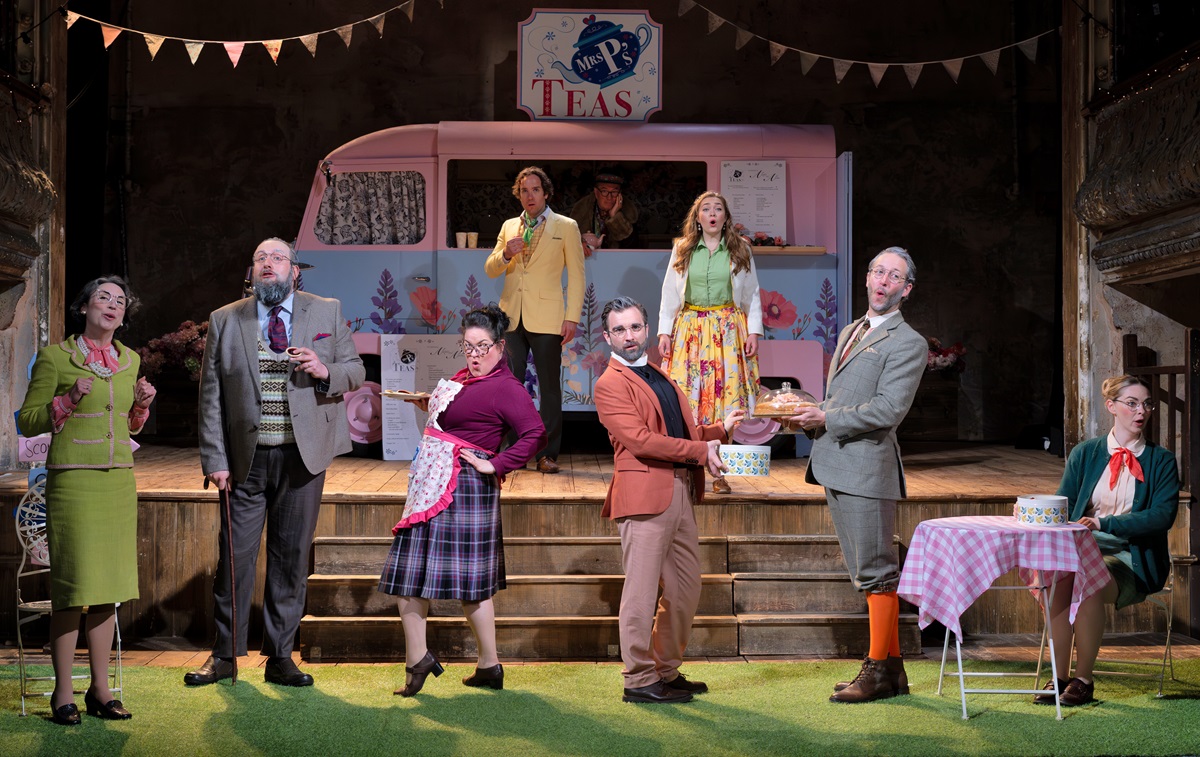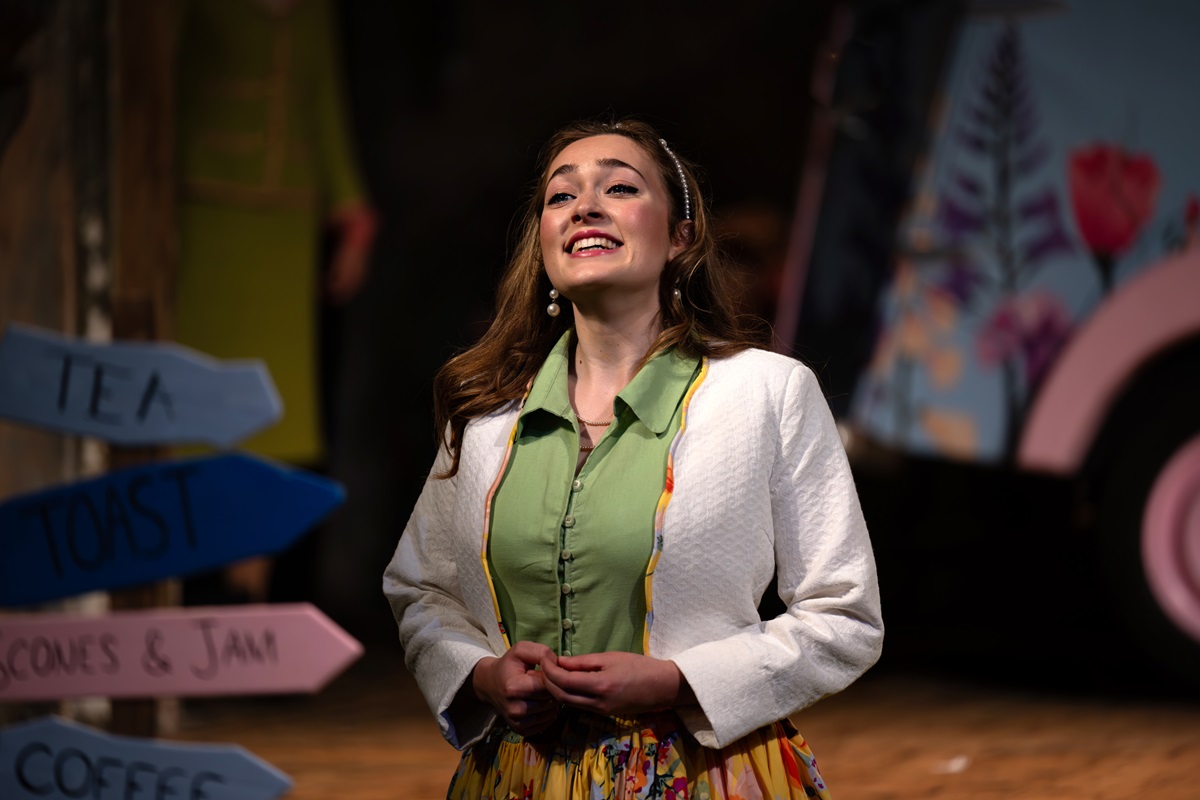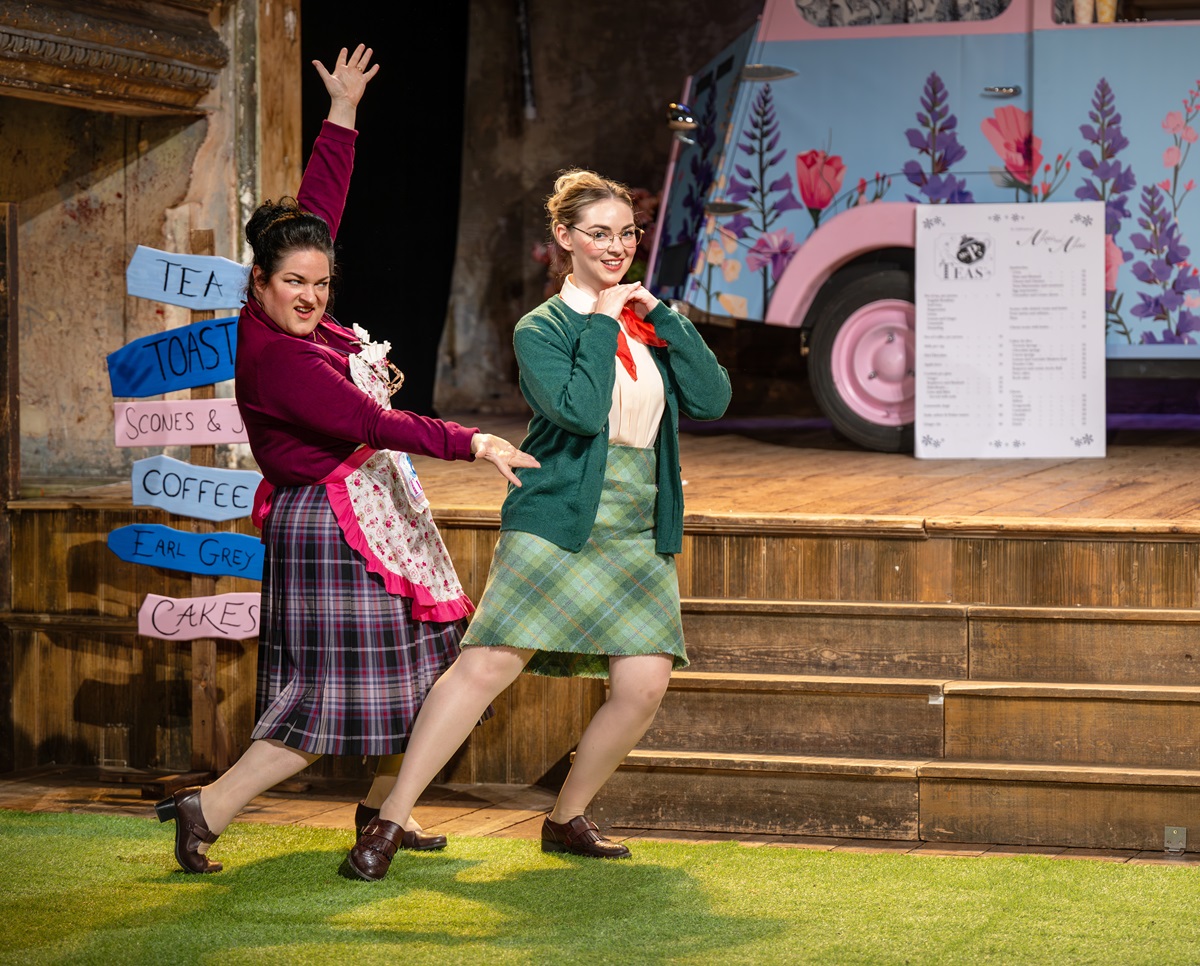John Groves
Operetta Research Centerr
14 June, 2024
Gilbert and Sullivan’s ‘comic opera’ The Sorcerer is a comparatively early work, coming between Trial By Jury and HMS Pinafore and first seen at the Opera Comique in London in 1877.

Poster for the 1884 revival of “The Sorcerer” with J. W. Wells.
Both the plot and the music are influenced by Donizetti’s L’Elisir d’amore as well as Weber’s Der Freischütz as the story involves John Wellington Wells (the venerable Richard Suart) adding a Love Potion to everyone’s tea at the nuptials of Aline (Ellie Neate) and the dreadfully upper class Alexis (Robin Bailey) who really is totally obnoxious and one of Gilbert’s great characters! The potion is added in a scene reminiscent of the “Wolf’s Glen” scene in Freischütz!
Perhaps the reason why The Sorcerer has never been as popular as some of the other Savoy Operas is because the music of the first part of the show is, on the whole, serious in style, the piece only coming alive with Wells’ introductory patter song, forty minutes in! However, the dialogue is some of Gilbert’s best, being very stylish and witty, especially as directed here for Charles Court Opera by John Savournin, who helps the highly talented cast get every ounce of humor possible without slowing the pace. In fact the whole production has terrific energy and there is barely a weak link in the nine-strong ensemble.

The company of “The Sorcerer” at Wilton’s Music Hall, 2024. (Photo: Bill Knight)
Robin Bailey has a ringing, attractive tenor voice and his dialogue is beautifully “plummy”! The vicar, Dr Daly, is given a hilarious performance by Matthew Kellett as is that of Alexis’ father, Sir Marmaduke, by Matthew Palmer. Typical of a John Savournin production is that the minor roles are given more prominence than they often are, and Hugo Herman-Wilson takes full advantage of this as the Notary. Even though he has few words to speak or sing he is very amusing in role.

Ellie Neate in “The Sorcerer” at Wilton’s Music Hall. (Photo: Bill Knight)
Soprano Ellie Neate throws off her mock coloratura with ease and has some wonderful facial expressions. Her mother, Lady Sangazure, (Catrine Kirkman) is costumed (Lucy Fowler) to look like everyone’s great aunt – very “Jean Anderson”, if you are mature enough to remember her! But again, it is the two secondary female roles that steal the show! Rosie Strobel is highly amusing as Mrs Partlet, who in this staging runs a tea bar from an ancient Citroen van. Her daughter, Constance, desperate for the vicar’s attentions, is a study in how to get the most from a role that almost disappears after the start of the opera!
Savournin’s direction is most imaginative, always at the service of both librettist and composer, yet always witty and occasionally poignant.

Rosie Strobel (Mrs Partlet) and Meriel Cunningham (Constance) in “The Sorcerer”. (Photo: Bill Knight)
David Eaton conducts as well as plays the piano, making it sound as if there are at least three people at the keyboard and lighting is by Aaron J Dootson. As usual Charles Court Opera seems able to use the split-level stage at Wilton’s much more effectively than other companies, and the acoustics of the venue cause the singing to appear effortless and the enunciation faultless: you can hear almost every word!
It is only at Wilton’s until this Saturday 15 June, but should you be unlucky enough not to get a ticket, it is touring to Buxton in August. Highly recommended – and not just to G and S afficionados!
For more information click here.
